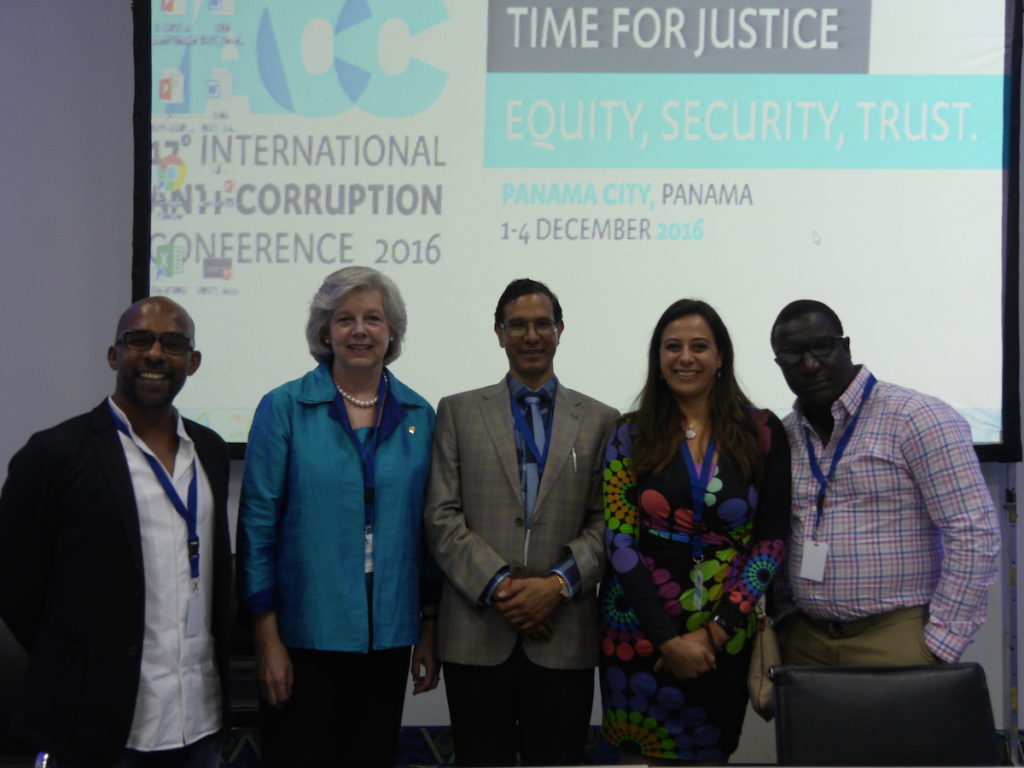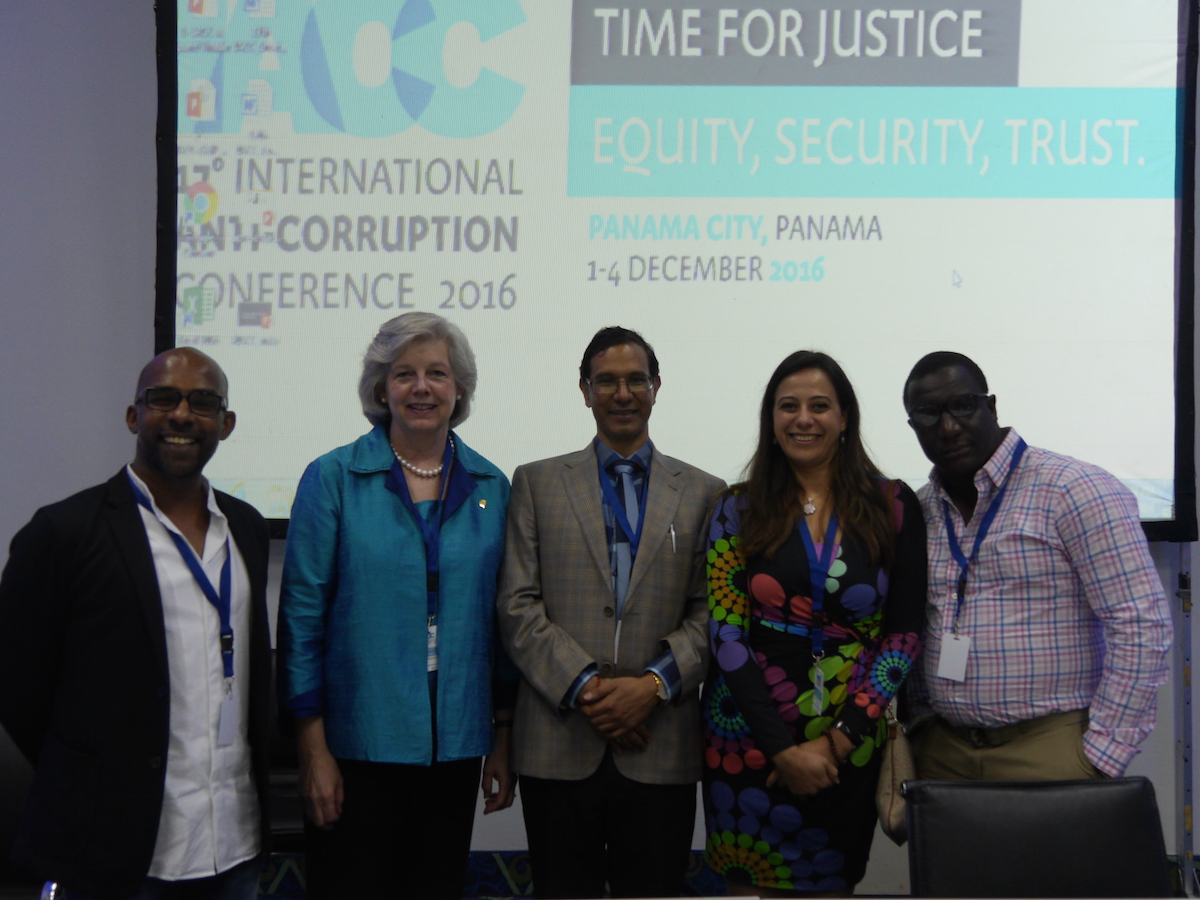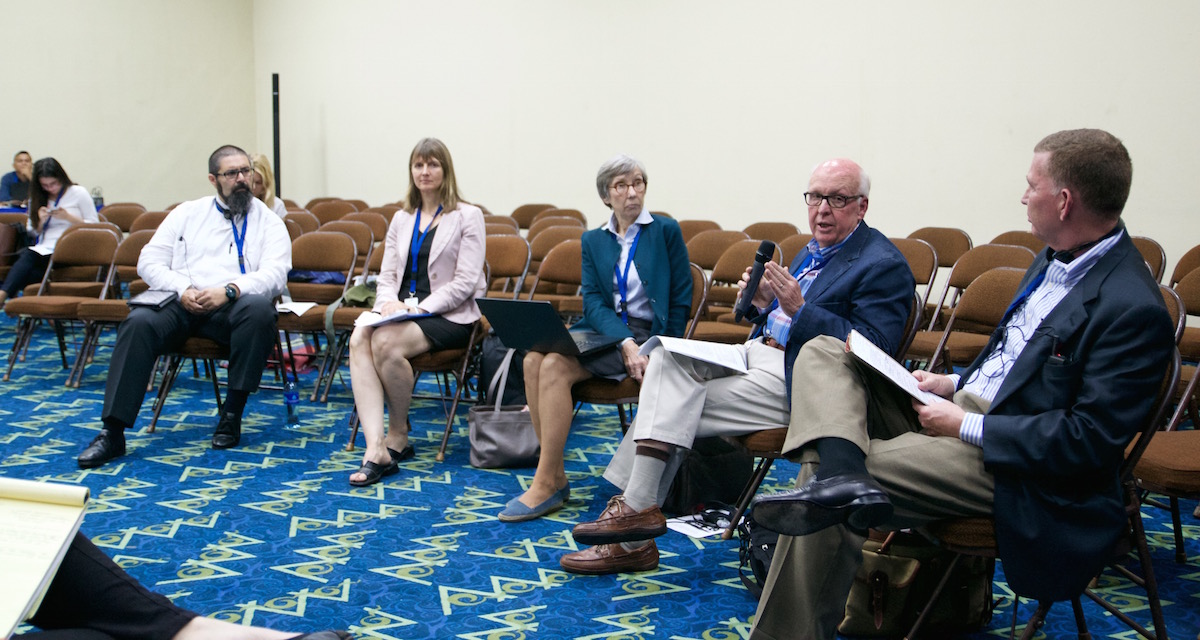
Panelists from the Sextortion panel
In February of this year, a deportation officer of the United States Immigration and Customs Enforcement (ICE) agency was indicted for extorting immigrants for cash and sexual favors. Arnaldo Echevarria promised two undocumented women “working papers” in exchange for sex, eventually impregnating one of them.
This is just one example of the many cases of sextortion that vulnerable women, and sometimes men, face around the world.
“The term sextortion is just a new name for an age-old problem,” Nancy Hendry, Senior Advisor at the International Association of Women Judges, said at a panel that took place during the second day of the 17th International Anti-Corruption Conference.
The panel, which was titled “New Standards of Equity and Accountability: Bringing Sextortion and Gender into the Anti-Corruption Discourse and Response,” sought to bring attention to an issue that is often excluded from the anti-corruption discourse — abuse of power to gain sexual favors.
“When we think of bribery, the image that comes to mind is money changing hands. [But] when it comes to sexual favors, there is often more tolerance,” Hendry said. “As long as we define corruption in purely economic terms, we reinforce the idea that bribes and corruption only happen in monetary terms, not sexual ones.”
Anga Timilsina, Programme Manager of the Global Anti Corruption Initiative, believes one of the reasons sextortion doesn’t occupy a bigger place within the anti-corruption discourse is a lack of female representation.
“I’ve been to over one thousand [anti-corruption] workshops during the last ten years and there is generally a lack of women’s perspective. People treat anti-corruption as a gender-neutral issue, but it’s not,” Timilsina said.
While the panelists acknowledged that sextortion also affects men in vulnerable situations, the majority of sextortion victims are women.
Data collected for a World Bank study about entrepreneurs in Cote d’Ivoire, Kenya, Nigeria, and Senegal shows that female entrepreneurs were significantly more likely than their male counterparts to have heard of sexual favors being requested in exchange for business services.
“Women are more vulnerable to corruption. Female individuals are socialized to think that their role is a reproductive one, to take care of kids and their families, whereas men are socialized to think that their role is productive. This creates a significant imbalance of power,” Farai Mutondoro, Senior Researcher and Coordinator for Transparency International in Zimbabwe, said. “Sextortion thrives on vulnerability, information asymmetry, and power asymmetry.”
While much emphasis was put on the problem of sextortion, the panelists also provided a list of potential solutions and actions to help create awareness about the problem.
According to Hendry, some of these key policies include incorporating the concept of sextortion into existing anti-corruption legal frameworks, changing institutional cultures by noting sextortion in codes of conduct, and encouraging women to come forward about cases of sextortion by making safe, confidential, gender-sensitive reporting mechanisms available.
Beyond its moral imperative, the fight against sextortion is not only about protecting the victims, but also society as a whole.
Lucia He is a product of the crossroads between Argentina and China. Editor of Sin Corrupción, a news website on corruption issues in Argentina run by the Asociación Civil por la Igualdad y la Justicia (ACIJ), an NGO. She is also a freelance journalist based in Buenos Aires, writing economic stories and filming videos about social issues for international media. She graduated from Georgetown University in 2015 with a major in International Political Economy and a certificate in Latin American Studies.


